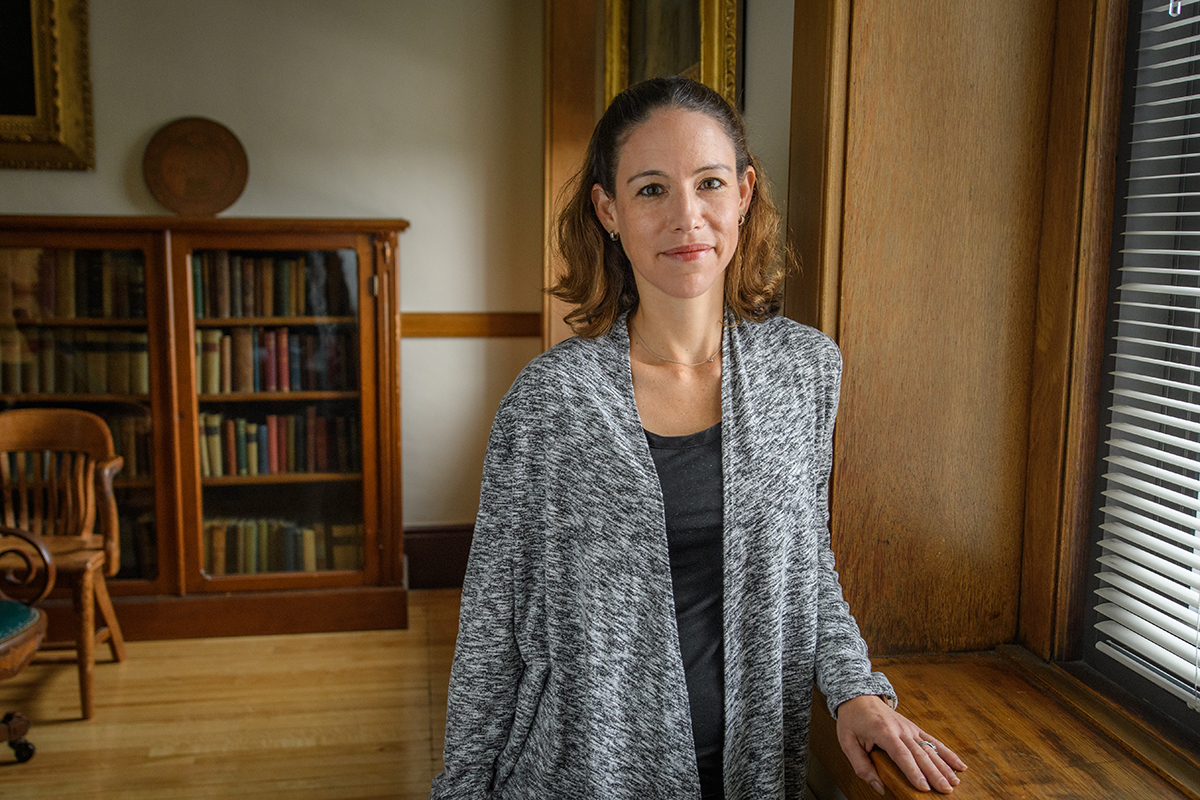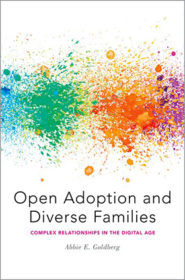Professor Abbie Goldberg’s new book examines open adoption in the digital age

Adoption was once a secretive affair that involved sealed records and a guarantee of anonymity; however, today’s adoptions are increasingly “open,” with varying levels of contact between participants. What unique challenges do open adoptions create for birth parents, adoptive parents, and their children — especially in the age of social media, where photos, familial connections, and details of our lives are documented and public?
“Open Adoption and Diverse Families; Complex relationships in the digital age” (Oxford University Press, Oct. 7), a new book by Psychology Professor Abbie E. Goldberg, sheds light on these questions. The book draws on extensive interviews with lesbian, gay, and heterosexual couples who adopted through private domestic adoption or foster care; Goldberg followed the families over the course of the past decade.

Goldberg’s book highlights the different trajectories that openness may take, the unique dynamics that emerge in contemporary U.S. adoptive families, and the ways in which the rise of technology and social media have transformed the experience of adoption for families, children, and practitioners. The book offers guidelines and provides practical advice to parents of adopted children from birth to middle childhood, and advises parents on how to address feelings of loss and grief an adopted child feels about his or her birth family.
“Open adoption is generally invisible, overlooked, or misunderstood in mainstream society,” Goldberg writes. “It comes with many benefits for both birth families and adoptive families and their children, but also with very tricky boundary challenges, especially in the age of social media and networking.”
In a clear and direct style that will appeal to a broad audience, the book answers questions like “How does contact unfold and evolve as a child grows?” and “How do adoptive parents talk about adoption with their children, and how does this vary depending on the level and type of contact with birth families?” Goldberg also provides guidance to families who’ve adopted children who were conceived through rape or incest, and to those whose adoptions involve a birth parent who suffers from mental illness or drug addiction.
Harold D. Grotevant, Rudd Family Foundation Chair in Psychology at the University of Massachusetts Amherst, calls the book “a must-read for those considering adoption, those who have adopted, and those who serve adopted families.”
Professor Goldberg’s research focuses on parenthood, relationship quality, and well-being in diverse families (e.g., adoptive parent families, lesbian/gay parent families). She has spent the last 15 years conducting the longitudinal research on adoptive parenthood that is featured in the book. Goldberg is author of “Gay Dads: Transitions to adoptive fatherhood”(2012) and “Lesbian and Gay Parents and their Children: Research on the Family Life Cycle” (2010), and co-editor of “LGBTQ Divorce & Relationship Dissolution: Psychological and Legal Perspectives and Implications for Practice” (2018). She has been on the Clark faculty since 2005.
Professor Goldberg’s book is available on amazon.com and through the Oxford University Press online store.


